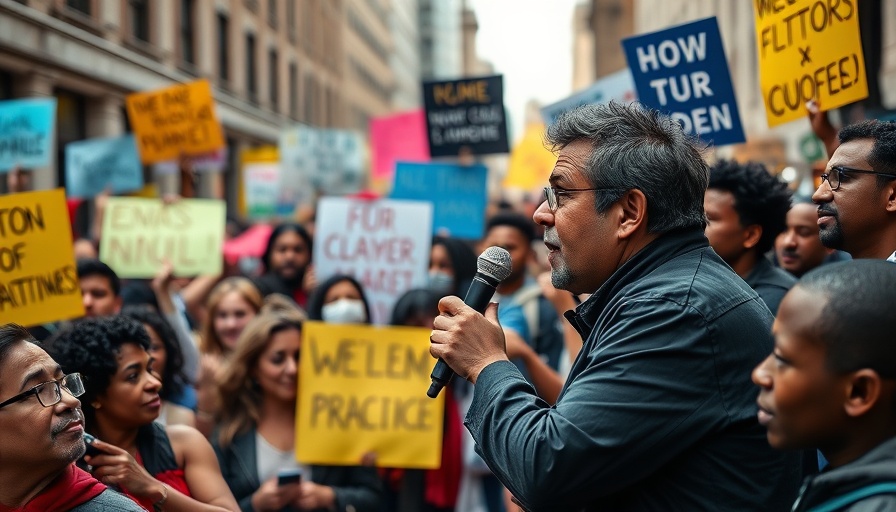
Understanding the Dismissal of Trespassing Charges Against Newark's Mayor
Newark Mayor Ras Baraka has found himself at the center of a legal whirlwind following his trespassing charge at a federal immigration detention center during an unannounced inspection with other congressional representatives. However, as announced by U.S. Attorney Alina Habba, this misdemeanor charge will be dismissed. This decision comes after careful consideration, emphasizing a desire to move forward without the cloud of this charge hanging over Baraka’s head. The dismissal reflects the pressure on officials who challenge federal immigration policies, particularly in an era marked by political divisions regarding these sensitive issues.
A Snapshot of the Event
On May 9, Baraka, along with three U.S. representatives, attempted to conduct an inspection at a privately operated immigration facility. This visit, aimed at shedding light on the conditions within the center, clashed with the administered policies under the Trump administration. The tensions between local administration actions and federal enforcement policies have become increasingly noticeable, revealing the complexities of immigration enforcement in America.
What the Dismissal Means for Baraka
This dismissal is pivotal for Baraka, who is not only the mayor of New Jersey’s largest city but also a candidate for the Democratic nomination for governor. The absence of this charge allows him to shift his focus back to his political career and responsibilities as mayor. Habba noted that the decision was reached to facilitate progress rather than linger on this charge, indicating a broader strategy to avoid politically charged actions that could escalate tensions further.
The Assault Charge Against LaMonica McIver
While Baraka’s troubles seem to be waning, another representative involved in the inspection has not shared his luck. LaMonica McIver has been charged with assault, having allegedly “assaulted, impeded, and interfered” with law enforcement during this notable incident. The distinction between the two legal fates highlights the varying degrees of involvement and the responses to those actions within the politically sensitive environment of immigration enforcement.
The Broader Context of Immigration Enforcement
Baraka's arrest and subsequent dismissal of charges depict a larger narrative of how immigration policies have been enforced across the U.S. The Trump administration's aggressive approach toward immigration has put various local leaders at odds with federal directives. This incident reflects not only on the individuals involved but also encapsulates the ongoing societal debate surrounding immigration regulations and the roles of state versus federal authority.
Future Implications for Newark's Political Landscape
Baraka’s ability to navigate these challenges effectively might play a significant role in his bid for governor. With a clear slate following the dismissal, he can rally support from constituents who care deeply about immigration reform, particularly in urban areas where the impact of such laws is most acute. As the political landscape shifts in New Jersey, Baraka’s responses to these events could define not only his career but also set benchmarks for how other local leaders engage with federal policies.
Potential Effects on Other Local Leaders
Baraka’s situation serves as a cautionary tale for local officials across the country who challenge federal immigration policies. As they see the consequences of Baraka's interactions with law enforcement, including the potential for personal legal ramifications, many may feel pressured to align their actions closely with the federal stance on immigration. This shift could impact how cities regulate or oppose federal directives in the future, paving the way for more cautious engagement from local leaders.
Conclusion: The Importance of Local Leadership in Immigration Issues
The developments surrounding Mayor Ras Baraka’s misdemeanor charge and the ongoing discussions related to immigration policy illustrate the critical importance of local leadership within the broader national discourse. As state and local officials are called to navigate a complex legal landscape that impacts their communities, their voices and actions will remain essential in the ongoing quest for compassion and reform within the immigration system.
As the political dialogue evolves, it will be crucial to stay engaged and informed about such significant local and national issues. Keeping abreast of the developments and understanding their implications can empower communities to advocate for fair policies. It is time to take an active role in these discussions and make your voice heard.
 Add Row
Add Row  Add
Add 



Write A Comment